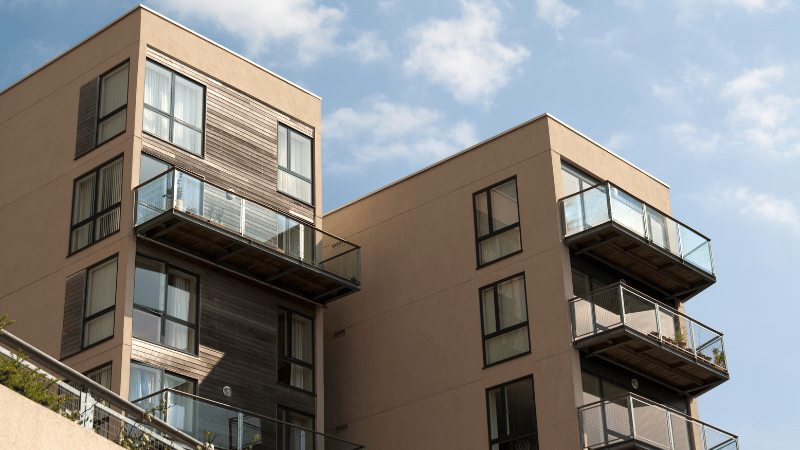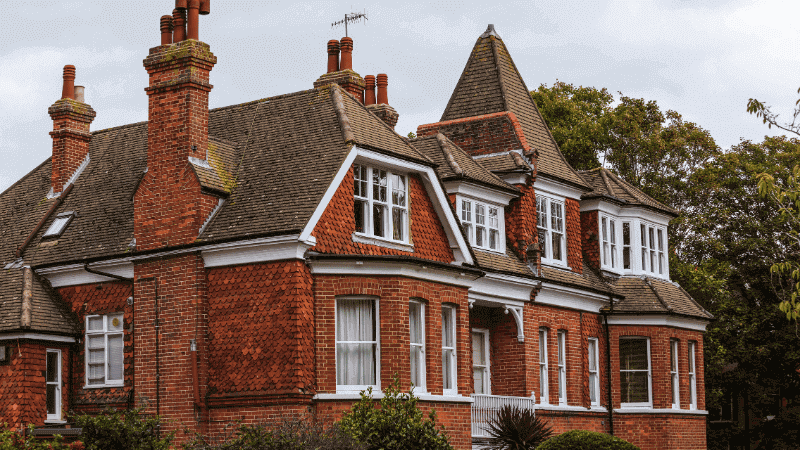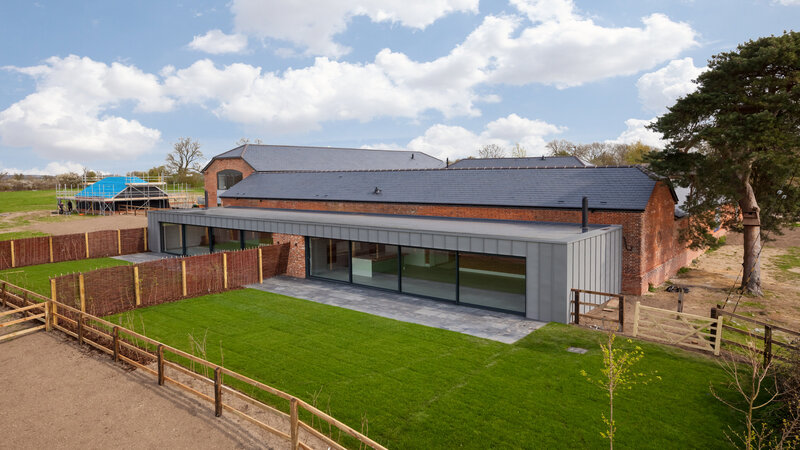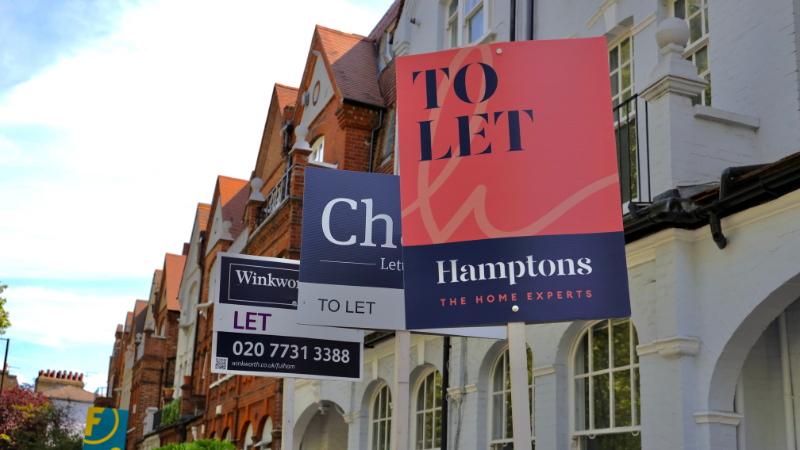Categories
30-Year Mortgages | What You Should Know

In recent years, 30-year mortgages have gained significant traction in the UK housing market, particularly among first-time buyers; offering a lifeline to many aspiring homeowners.
As property prices continue to climb, 30-year mortgages have emerged as a viable solution for many buyers. These extended-term loans spread repayments over three decades, making monthly payments more manageable and helping borrowers pass lenders' affordability tests.
And here, in this comprehensive guide, will explore the ins and outs of these longer-term mortgages, their benefits and drawbacks, and how they can be a stepping stone to homeownership.
Need a 30-Year Mortgage?
In this Blog
The Rising Popularity of Longer-Term Mortgages
Why Choose a 30-Year Mortgage?
A Strategic Approach to 30-Year Mortgages
Leveraging a 30-Year Mortgage for High Loan-to-Income Ratio
What to Keep in Mind When Opting for a 30-Year Mortgage
Find the Right Mortgage for Your Needs
What Is a 30-Year Mortgage?
A 30-year mortgage is a home loan with a repayment period spanning three decades. While more common in the United States, this type of mortgage has become increasingly popular in the UK as property prices continue to rise and buyers seek more affordable monthly repayments.
The Rising Popularity of Longer-Term Mortgages
Recent market data reveals a growing trend towards longer mortgage terms. In the first quarter of 2024, a striking 21% of first-time buyers opted for mortgage terms exceeding 30 years. This shift reflects the need for more accessible financing options in the face of rising home costs and stricter lending criteria.
Lenders are adapting to this trend by offering more flexible products:
- Many major UK lenders now offer mortgages with terms up to 40 years.
- Some lenders are extending maximum age limits for borrowers at the end of the mortgage term.
- There's an increased focus on products that allow overpayments without penalties, giving borrowers the flexibility to reduce their term when finances allow.
While longer-term mortgages provide an entry point for many first-time buyers, they also raise concerns about long-term financial stability and retirement planning. As this trend continues, it's likely to shape the UK housing market and lending practices for years to come.
Why Choose a 30-Year Mortgage?
However, there are benefits to extended mortgage terms in the UK:
- Lower Monthly Payments: By spreading repayments over a longer period, 30-year mortgages offer significantly reduced monthly payments compared to shorter-term options.
- Improved Affordability: Lower monthly outgoings can make homeownership more accessible, potentially allowing you to afford a more expensive property or buy in higher-priced areas.
- Easier Approval: Lenders assess affordability based on your ability to manage monthly payments. Lower payments can improve your chances of loan approval, especially for first-time buyers.
- Flexibility for the Future: As your financial situation improves, you have the option to remortgage to a shorter-term loan with more favourable rates, potentially saving on overall interest.
The Trade-offs of a 30-Year Mortgage
While 30-year mortgages offer several advantages, it's crucial to consider the potential drawbacks:
- Higher Overall Interest: Although monthly payments are lower, you'll pay more in interest over the life of the loan compared to shorter-term mortgages.
- Slower Equity Build-Up: With smaller monthly payments, it takes longer to build equity in your home.
- Age Considerations: Some lenders have age restrictions, requiring your mortgage term to end before a certain age (typically between 75 and 80 years).
- Retirement Planning Challenges: Mortgages extending beyond retirement age may affect pension contributions and retirement plans.
A Strategic Approach to 30-Year Mortgages
Many homebuyers use 30-year mortgages as a strategic tool to enter the property market. Here's how you can make the most of this approach:
- Get on the Property Ladder: Use a 30-year mortgage to make initial monthly payments more affordable, increasing your chances of approval.
- Build Equity and Financial Stability: Over the next 5-10 years, focus on building equity in your home and improving your financial situation.
- Remortgage for Better Terms: Once you've built up equity and potentially secured a higher income, consider remortgaging to a shorter term with better rates.
Related: How To Refinance a Property in the UK
Leveraging a 30-Year Mortgage for High Loan-to-Income Ratio
In London, we raised £1.5 million for a high-net-worth client who had approached us with a complex mortgage situation.
Despite an impressive annual salary of £200,000 plus a £75,000 bonus, their high loan-to-income (LTI) ratio presented challenges. The situation was further complicated by their partner's modest income of £24,000 and two dependents.
Our advice included a strategy to remortgage after two years, potentially shortening the term and securing better rates as the client's financial situation stabilised. This specific case demonstrates how longer-term mortgages, for 30-years or more, combined with specialist products, can provide solutions for complex financial situations.
What to Keep in Mind When Opting for a 30-Year Mortgage
When deciding whether a 30-year mortgage is the right choice for you, consider the following key factors:
Interest Rates
A 30-year mortgage typically comes with higher interest rates compared to shorter-term loans. This is because lenders charge more for the extended repayment period. However, you have the option to choose between fixed and variable interest rates.
- For example with a fixed-rate mortgage, your monthly payment remains constant. So, if you secure a rate of 4% on a £200,000 mortgage, your monthly payments might be around £955. This stability is beneficial if you want predictable payments. In contrast, a variable-rate mortgage could start lower but fluctuate. You might begin with a 3% rate and pay £843 a month, but if rates rise to 5%, your payments could jump to £1,073.
Remortgaging Opportunities
Over time, as you pay off your mortgage and property values increase, you build equity in your home. Once you’ve established a decent amount of equity, you can remortgage to a shorter term with a potentially lower interest rate. This can help you reduce your overall interest costs and even shorten the loan duration.
- After 5 years, you may have paid down £30,000 of your mortgage and potentially built £40,000 in home equity due to rising property prices. By remortgaging to a 20-year term, you could lower your interest rate from 4% to 3.2%, saving thousands over the remaining life of the loan.
Affordability Assessments
Lenders will assess your financial situation to determine if you can comfortably afford the monthly repayments on a 30-year mortgage. They’ll take into account your age, income, and long-term financial goals to decide on the loan approval.
- A 30-year mortgage might suit a 35-year-old buyer earning £40,000 annually with a steady career trajectory, as the lower monthly payments leave room for other expenses like childcare or savings. However, for someone nearing retirement age or with an unstable income, a lender may suggest a shorter-term mortgage to avoid long-term financial strain.
Each of these considerations can significantly impact your financial situation, so it's essential to carefully assess your options.
Find the Right Mortgage for Your Needs
A 30-year mortgage may be the right choice if you need lower monthly payments and improved affordability. However, it's important to consider the long-term financial implications and have a strategy in place for the future.
Ready to explore your mortgage options? Our expert advisors at Clifton Private Finance are here to guide you through the UK mortgage market. We specialise in helping clients secure competitive 30-year mortgages and offer ongoing support throughout the mortgage process.
FAQs
How does a 30-year mortgage work?
A 30-year mortgage spreads repayments over three decades, reducing monthly payments but increasing the total interest paid over time.
Is a 30-year mortgage more expensive in the long run?
While monthly payments are lower, the overall cost of the mortgage is higher due to the extended repayment period and additional interest accrued.
Can I remortgage after a few years?
Yes, after building equity, you can remortgage to a shorter term, potentially securing better interest rates and reducing the overall cost.
Are 30-year mortgages widely available in the UK?
Yes, although traditionally less common, 30-year mortgages are now increasingly available in the UK.
What's the difference between fixed-rate and variable-rate mortgages?
A fixed-rate mortgage guarantees stable interest rates for a set period, while a variable-rate mortgage fluctuates with the market, offering lower initial rates but the risk of future increases.
How does a 30-year mortgage affect my retirement planning?
Consider whether you'll still be working at the end of the mortgage term. Some lenders may have maximum age limits for when the mortgage ends









